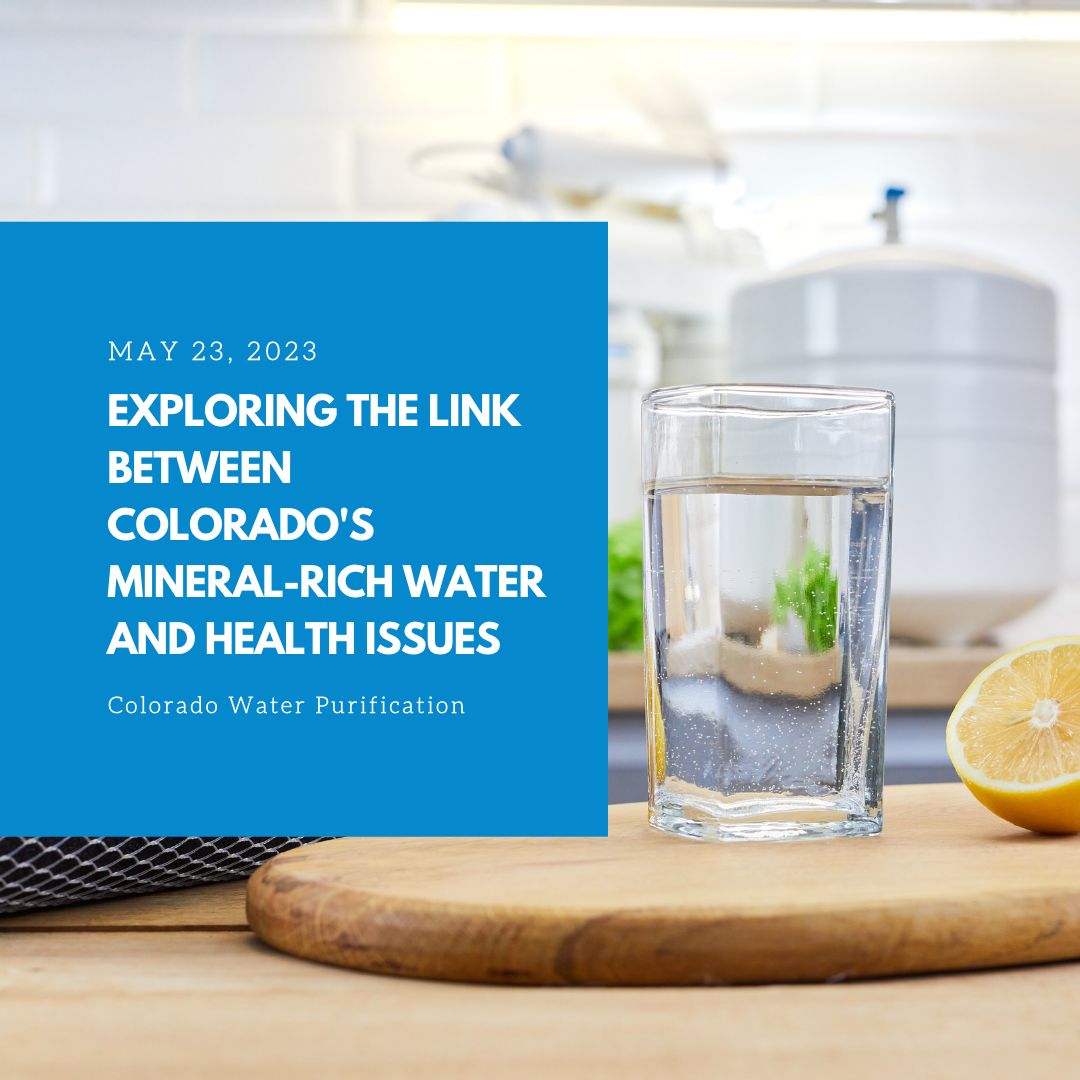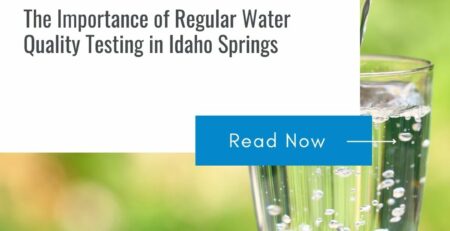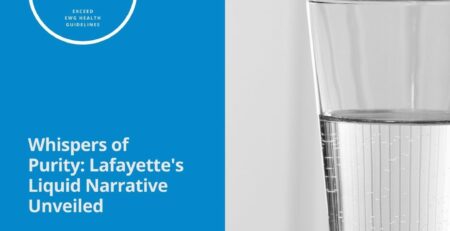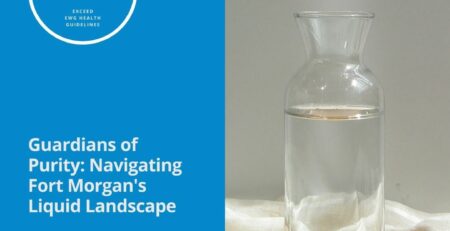Exploring the Link Between Colorado’s Mineral-rich Water and Health Issues
Living in Colorado is a special opportunity to experience the beauty of nature, yet it also comes with certain considerations regarding a unique environmental risk – mineral-rich water. Advertisers often point out Colorado’s abundant natural resources, including its high concentration of essential minerals, but what do these minerals mean for day-to-day life in Denver? When it comes to health issues and access to clean drinking water, research indicates that more than simply aesthetics are at stake; unfortunately our beloved mountain state could be impacting not just our views, but also the quality of our health. In this post we explore every corner of this issue from how climate change has exacerbated regional effects and new treatments on tap (literally!) as well as preparing for the future with regularly testing private home wells. Read ahead to learn just what drinking water is doing for your wellbeing here in The Mile High City.
Introduce the topic of Colorado’s mineral-rich water and its potential effect on health
Nestled in the heart of the Rocky Mountains, Colorado is renowned for its remarkable scenery and adventurous spirit. But beyond these awe-inspiring landscapes lies a hidden gem – mineral-rich water. Colorado’s water is loaded with essential minerals, including magnesium and calcium, which offer a range of potential health benefits. From improved digestion and stronger bones to alleviating stress and reducing inflammation, the possibilities of this natural elixir are endless. What’s more, many residents swear by the benefits of drinking this water regularly, claiming it has transformed their overall health and well-being. So, the next time you’re in Colorado, why not give it a try and see if the hype lives up to the reality?
Examine the scientific research on water hardness in relation to health outcomes
Water hardness refers to the level of dissolved minerals, particularly calcium and magnesium, in a given sample of water. While this is typically not harmful to human health, there has been scientific research exploring the potential negative consequences associated with consuming hard water. Studies have suggested that communities with higher levels of water hardness exhibit a higher incidence of cardiovascular disease and hypertension. Other research has found a link between hard water and skin irritation, eczema, and even an increase in the likelihood of developing certain cancers. However, while these findings can be cause for concern, more rigorous research is needed to determine the strength of these associations and to pinpoint any underlying mechanisms that may explain them. Ultimately, it is important for consumers to be aware of the quality of their water supply and the potential health implications of hard water.
Discuss the specific minerals found in Colorado’s water and how they can affect human health
Natural mineral contents in Colorado’s water are exceptionally high; however, one cannot deny the potential risks associated with them. A wide range of minerals, such as magnesium, calcium, zinc, and copper, can be found dissolved in the state’s water supply. While some of these minerals are essential for human health and impart various benefits, others such as arsenic, lead, and mercury may pose severe risks. Arsenic is known for its carcinogenic properties, whereas lead can cause developmental and cognitive delays in children. Long-term exposure to these harmful elements can lead to severe health concerns, making it essential to ensure that Colorado’s water source undergoes regular testing and treatment.
Analyze the link between Colorado’s mineral-rich water and various health issues, such as hypertension, kidney stones, heart problems, etc.
Nestled high in the Rocky Mountains, Colorado is renowned for its crisp, pure water that rushes down from the snow-capped peaks. However, the mineral-rich makeup of this water can have both positive and negative impacts on human health. It’s long been known that the state’s high altitude can affect the body’s oxygen levels and blood pressure, but recent studies are also drawing connections to other health issues such as kidney stones and heart problems. While some of these minerals may provide health benefits, such as aiding in the absorption of essential vitamins and minerals, it’s important for Coloradans and visitors alike to be aware of the potential risks associated with the state’s unique water composition.
Consider potential solutions for reducing the amount of minerals and chemical pollutants found in Colorado’s water
Clean water is an essential resource for the well-being of all living beings. Unfortunately, Colorado’s water sources are gradually becoming contaminated with minerals and chemical pollutants, posing a threat to the environment and human health. The need for urgent action to address the issue cannot be overemphasized. Some potential solutions for reducing the amount of pollutants include investing in clean energy sources that can reduce carbon emissions, improving wastewater treatment processes, and educating citizens about the dangers of polluting the environment. It is time to act and take responsibility for the preservation of our water resources for future generations.
Summarize key points and suggest further research on this topic
As we summarize the key points of this topic, it is important to note its significance in the field of research. By reviewing the literature, we can gain a deeper understanding of the subject matter and identify areas where further research is needed. This process enables us to develop new theories and solutions to problems that are still unsolved. Additionally, exploring the topic from different perspectives can provide a more well-rounded view and help us consider factors that may have previously been overlooked. Therefore, as we move forward, it is essential to continue investigating this topic to advance our understanding and improve our ability to address real-world challenges.
As we have discussed, Colorado’s mineral-rich water has the potential to affect human health in a variety of ways. The specific minerals found in the state’s water may present challenges for people consuming it, including an increased risk of hypertension, kidney stones, and other heart problems. Despite this, there is still much more to learn about the effects of Colorado’s mineral-rich water on human health, and further research needs to be done. In the meantime, however, various strategies can be employed to reduce the amount of minerals and chemical pollutants found in Colorado’s water in order to reduce these health risks. From implementing better filtration systems that target certain minerals and chemicals to strategically collecting and testing the water supply before consumption, there is evidence that these solutions can go a long way towards improving public health. As researchers continue their work to gain a greater understanding of how this state’s unique geological features might impact its inhabitants’ wellbeing, it is important for citizens to remain vigilant about informing themselves on the quality of their local tap water as well as taking active steps to ensure their access to safe drinking water in all its forms.











